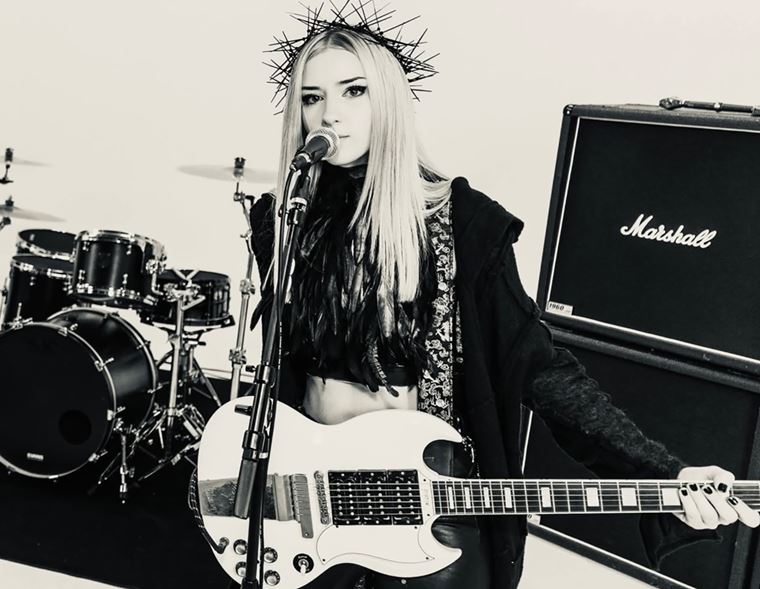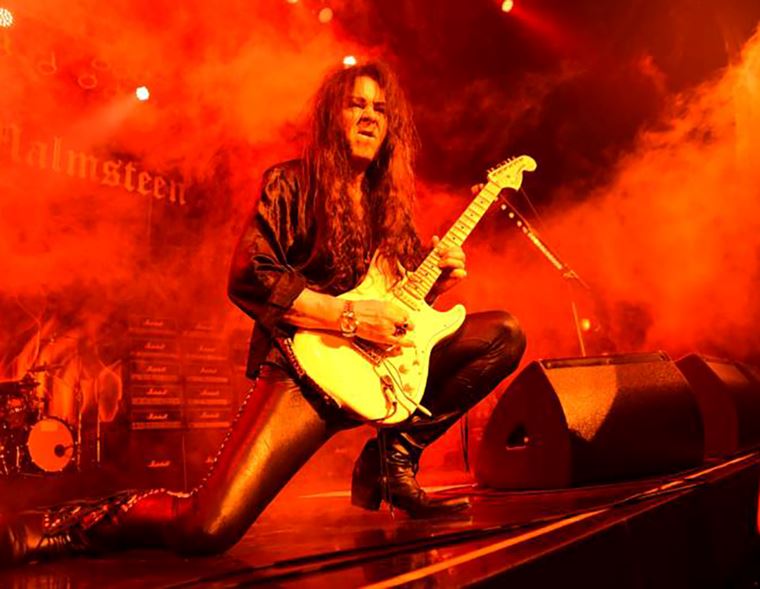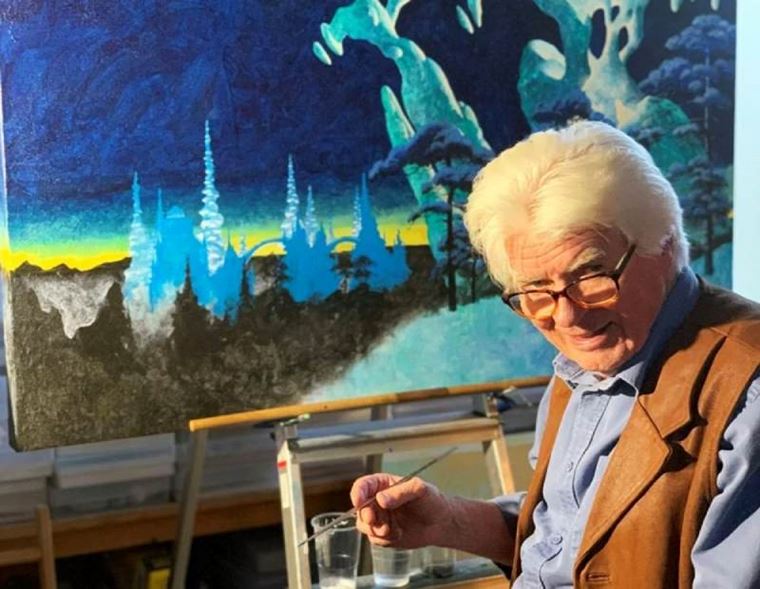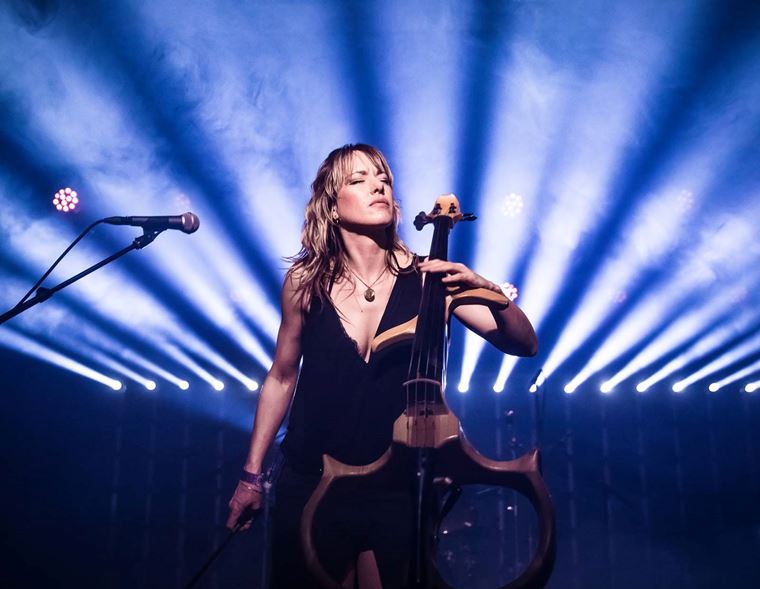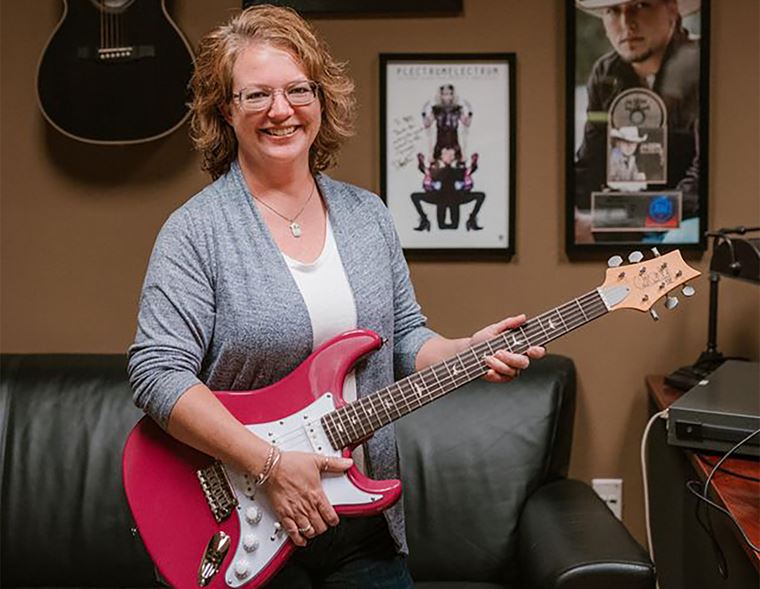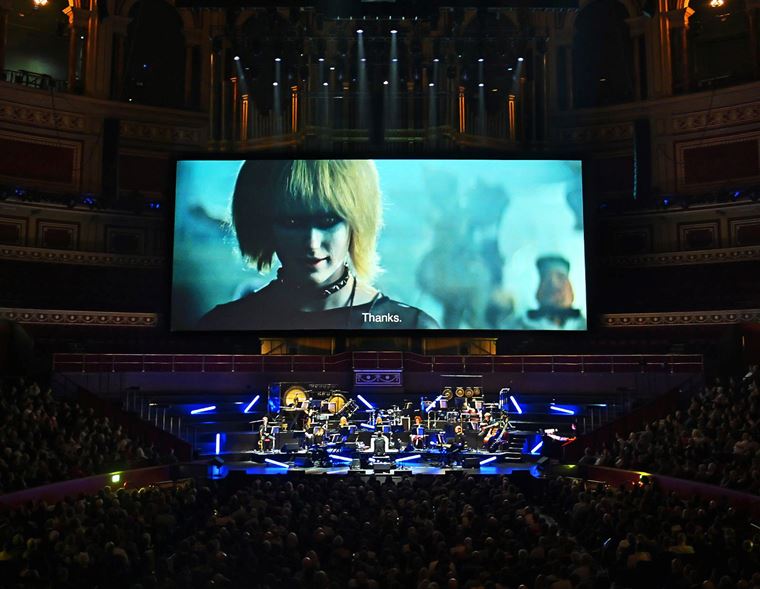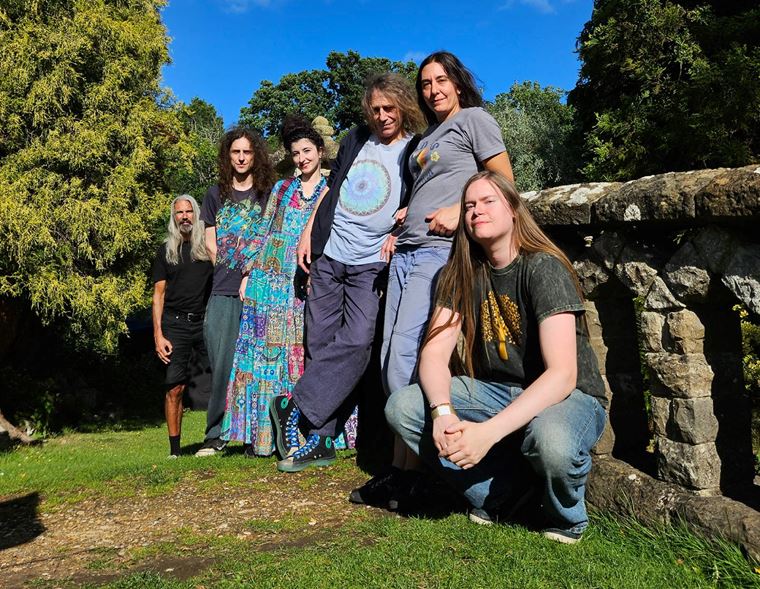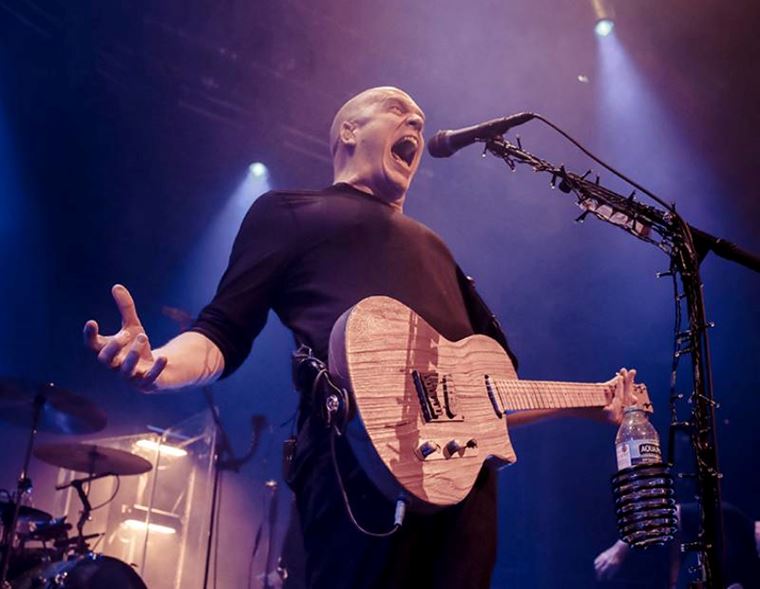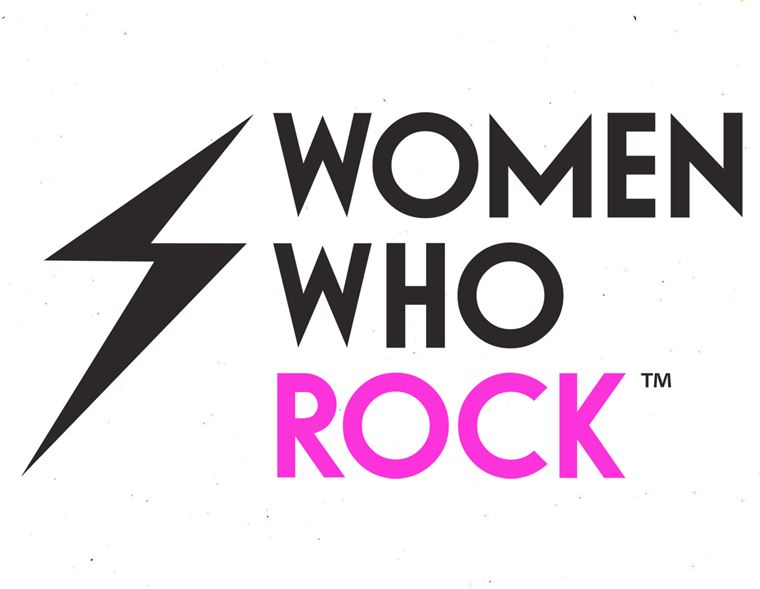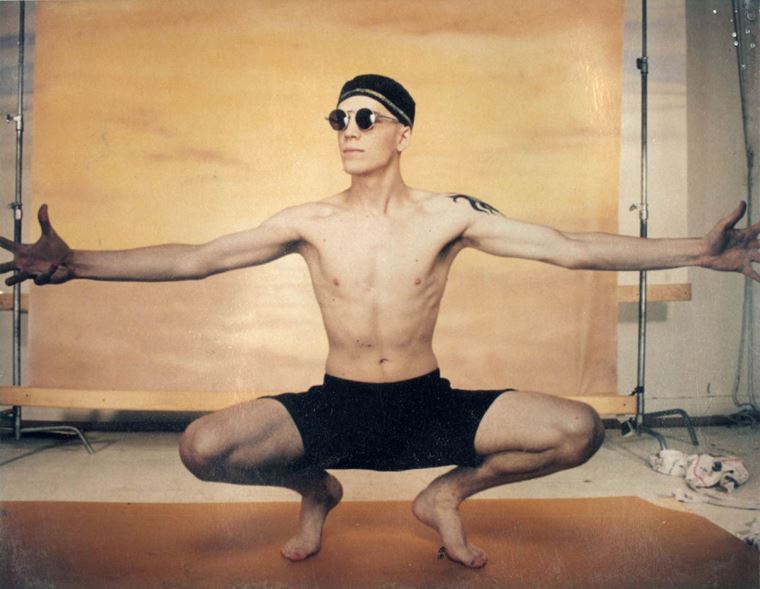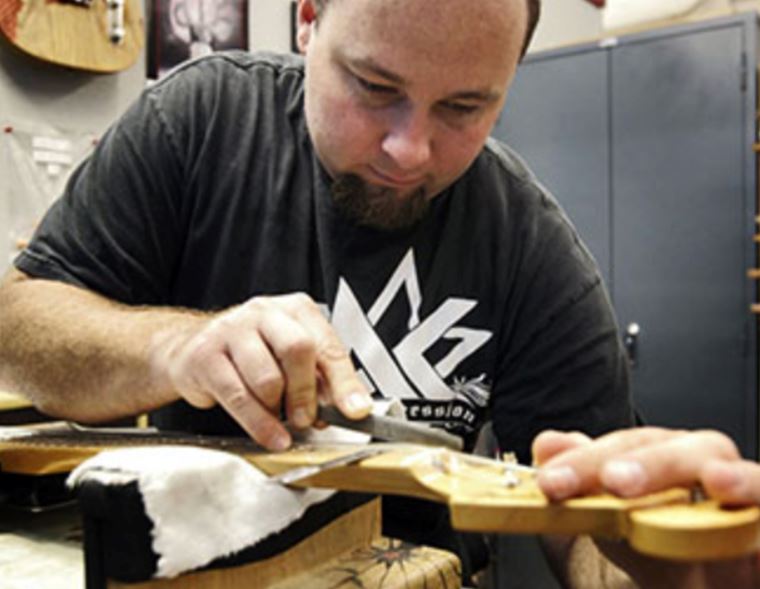"You know the old phrase 'Don't bore us, Get to the chorus'? There is NOTHING like a big chorus!" BILLY MORRISON talks OZZY, Billy IDOL and more!
Published on 26 April 2024
It’s 8am over in Beverly Hills, California, and Billy Morrison is in a chipper mood, considering that I’m the first of seven interviews for him this particular morning. As corresponding weather goes, Glasgow seems to be enjoying a freak outbreak of sunshine, so my late afternoon is gelling pretty well with Billy’s LA morning as we sit down to discuss guitars.
They say that show business is all about who you know, and whilst that’s not exactly true, it certainly doesn’t hurt to have a circle of friends like Billy’s. The Billy Idol guitarist has just released a diverse-sounding, hard-rocking record called the Billy Morrison Project, and joining him on certain tracks are a veritable wishlist of rock’s top artists: Ozzy Osbourne, Billy Idol, Slipknot’s Corey Taylor, Steve Vai, Linda Perry, Steve Stevens, Ministry’s Al Jourgensen and D.M.C. It says a lot about Morrison that this stellar roster of stars were all happy to lend their talents to his record, but then, as I find out in our forty-something minutes of conversation, Billy’s great company. How many other records from 2024 are you going to put on this year and hear D.M.C. rapping one moment and Gary Numan’s daughter Persia signing an ethereal vocal the next?
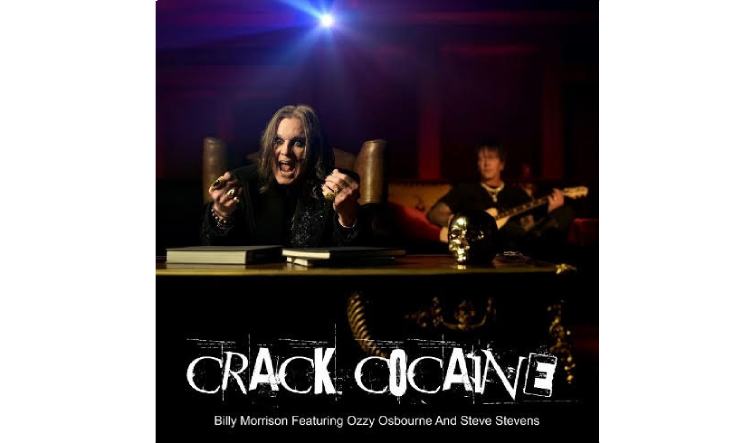
A Londoner with more than a bit of the classic punk rocker about him, Billy’s an intriguing mix of old school rockstar and forward-thinking business pro. He knows what he’s talking about, and he’s glad to share plenty of insights and perspectives. He’s just made a great record and wants people to know all about it. Here’s our conversation in full…
Billy Morrison Interview
Guitarguitar: So, I understand that the beginning of this album goes back to the COVID time, which obviously was a bad time for everybody. But does that mean you have a good home studio setup that you can just dive away and work on whenever you have ideas?
Billy Morrison: I have a fabulous home studio. I'm very, very lucky. And yeah, I mean, I was doing what all creatives were - or should’ve been doing - during COVID: if you're a creative, you create.
So yeah, it's difficult to describe but I have a floor of my house which is a recording studio. So, yeah, why not? I was locked away, like we all were, and what else you're gonna do? You're gonna order food to get delivered, and then you're gonna sit around! And I wasn't gonna sit around watching TV, so I made some music, but I didn't know I was making a record.
GG: Ah, I see. Is this one of those ones where, after a while, you realise you've got quite a lot of quick strong pieces and then you sift through and find what’s gonna be developed?
BM: Yeah, kind of! So my friends - Jeordie from Manson's band and Eric Eldenius, Billy Idol’s drummer - they're just local! They would come over and, you know, we would fuck around. I love hip-hop so I'd have a hip hop beat and then, you know, Jeordie likes Britpop, so he'd have this Britpop acoustic jangle, and then Eric would throw some weird-ass chords in there because he's weird-ass, right? (laughs)
And, we never really finished much. It was just ideas and I had 30 or 40 ideas. And then right after COVID, Sharon Osbourne suggested, in a hugely generous move, she said that the track crack cocaine that I had written with Steve (Stevens) and Ozzy, she said, ‘you should put that out. Ozzy will do a video and do some press. We're behind it, but it's, it's your song. You should put that out’.
So, I revisited all the things that Jeordie and Eric had done with me. And we recorded a lot of it, changed some stuff around and made them songs, and started to sing on the ones that I gravitated towards. That's how the body of work started.
GG: Yeah, It's a nice natural process. There are some absolutely amazing guests on this record. Were you writing certain tracks, you had the ones you gravitated towards for your own vocals, but did you start thinking, like, ‘this one will be good for Billy Idol’? This one will be good for Corey Taylor? I know there was some of the Ministry stuff already written for them and then you decided to take back, is that right?
BM: Yeah. You know, the whole guest thing came from wanting to serve the song, not my ego. And no, I wasn't writing songs with people in mind at all. I was writing music. And then I sang on the ones that I felt gravitated towards me. And then, you know… look, let's take Chasing Shadows, which is the piano ballad. I wrote all of that, the whole thing, lyrics, melody, whole nine yards. So there is a version of me singing it, which the world will never hear! You don't want Billy Morrison singing a piano ballad, right? (laughs)
So, at that point, I was still just sketching out lyrical ideas and melody, and then I needed to serve the song. I listened to me singing it, and I'm like, yeah, you know, it's okay. But Linda (Perry) would be amazing singing that. And that's how everything came about: I was trying to not have it be all about me when I've obviously got some close friends that would say yes, and I just started asking people, you know?
GG: Yeah, yeah, for sure. And it's an interesting one: the quality of the record across the board from start to finish is really high…
BM: Thank you.
GG: Oh, yeah, it's good stuff! You were just talking about how, if you’re a creative, you create. I absolutely agree! Does that mean that this record is the cherry-picked stuff from a couple of years’ worth of just completely, you know, recording all the time?
BM: Yes. Yes it does. You know, once I was sitting on about six or seven songs - and that included the Ozzy song and it included the Corey Taylor song and then about four or so that I'd sung - I then made the decision: okay, this could be quite a strong body of work with my name on it, that I just want to lead.
Look, my whole career is playing guitar for other people, the people that have their name on the marquee and I'm good with that. I have no designs on suddenly starting a huge solo career. That is not the game plan here. I just want to leave behind an album with my name on it that speaks to the musical sensibilities that I love, which are broad. There's EDM samples on the album; there's hip hop beats, piano ballads, metal guitars. But I'm proud of the 12 songs that I'm dropping out into the world.
And at that point. I wrote a few more. There weren't all 12 in that body of work that me and Eric and Jeordie did, so I cherry picked those and then added! At that point, I'm inspired, I'm like: okay, I think I'm making a record! So I started writing more songs.
Co-Writing with Ozzy
GG: Right, yeah, for sure. And one of them - the first one we heard - was with Ozzy: Crack Cocaine. That's not the first time you've co-written with Ozzy. So how does the process work with you two? Do you come to him with a largely finished tune, ready for his vocals?
BM: Ozzy's been my best friend for about 30 years, so I'm very careful not to mix… look, we're friends, that's all. If anyone was to listen to our conversations, they wouldn't understand it! (laughs) We're not talking about music, we're talking about all kinds of other stuff. But obviously, we're, as well as being best friends, we're also musicians, both of us, so clearly over 30 years, sometimes there's going to be a conversation where Ozzy will sing me something. I'll grab a guitar and I'll play some chords and go ‘oh yeah, that's cool’.
We've done that over the years, and a couple of times they have come to fruition. But it's not something I push. I'm not trying to muscle in on anything ‘Ozzy’. He's just my best friend. So, of course, I'm going to do music with him when it feels right.
GG: Yeah, exactly.
BM: And Crack Cocaine definitely felt right. That thing didn’t take very long to write or record.
And there were zero egos in the room: it was just me, Steve and Ozzy hanging out. And we came up with what we think is a classic Ozzy track.
GG: Yeah, most definitely. It's got that ‘thing’, doesn't it? It’s got the right kinda…
BM: It’s got the thing. You talk about the ‘thing’. It is ‘the thing’: you can't put a name on it; everyone's trying to describe it, and it's like: it's just a ‘thing’. And the thing doesn't come all the time, otherwise, everyone writing songs would be right and hits all the time.
That is just something you don't really control and you're granted a moment in time, which we were when the three of us were in the room and it just came together and we're like, oh, we've got the thing! (laughs)
GG: Yes, exactly, haha! Now, talking about getting people in the room, you've been able to get excellent people into the room for this album, like Corey Taylor and all the rest of it. But it just so happens that two weeks ago, I was talking to Steve Vai about all kinds of things…
BM: I actually watched it yesterday, your interview with Steve.
GG: Oh, did you really?
BM: I did! Isn't he a lovely man?
GG: Massively so. I’m lucky to say that's my third time talking with Steve. He goes above and beyond and he always shares so much. And on top of being one of the world's best guitar players, he's just a fantastic human being.
BM: Yeah, he is.
GG: So I was thinking, Steve guests on your record, and as I was listening, I was thinking: how do you go about, quote-unquote, directing somebody like Steve on one of your tunes?
BM: Well, you don't. (laughs) You don't direct Steve Vai at all. I sent him that section of music, which, by the way, it's inspired by the Wildhearts. Along with the Pistols, the Wildhearts are one of my greatest influences in rhythm guitar and songwriting. And so if you listen to the bedrock of what Steve Vai soloing over, you'll just hear the Wildhearts. It's a Wildhearts riff that they never wrote, you know? That's me paying homage to Ginger and you know, it's three key changes, it's complex chord structures, it's rhythmic patterns and once I sat down with it, i'm like: well, there's no way i'm going to try and solo over that! I probably could hack my way through it, but why?
You want to serve the song and so I texted Steve: hey buddy, i'm doing a solo album. Would you play on it? And you know Steve: he went ‘Yeah, of course! Send me it’. That's all I did! I sent him it, about a week later he sent it back with what you hear. There was no mixing on that. Literally we rode the volume faders and went ‘there’, and what you hear is what he gave me. God forbid anyone would think I would direct Steve Vai! (laughs) That's not happening!
GG: No, I had a feeling it would be more like that, I just, you know, haven't been in the situation of being able to have Vai in my record (laughs), so I’m like, ‘what do you do in that situation? Yeah, you just let him get on with it.
BM: I think that's the case across my whole album. If I'm asking someone to contribute, I'm asking not only for them to perform on it, but to bring their essence and their vibe. And really, if you ask any of my guests, I wasn't in there going ‘Now on this part, I want you to do this’. Otherwise why ask them?
GG: Yeah, right.
BM: I want Al Jourgensen to do his best Al Jourgensen impression. And I want Linda Perry to just do her. She's written a few hits, you know? (laughs) I just did not direct people.
GG: Yeah. Exactly. You're asking them because you want them.
BM: Yeah.
Collaboration
GG: Totally. Well, with all these amazing collaborative pieces that are in the album in mind, is there a really tight-knit kind of Los Angeles musical community? Is that quite normal for that scene?
BM: Well, I would say anyone who lives in Los Angeles for as long as I've lived here and been a professional musician has a Rolodex, if you like. But what's important to me is this album is way more than who I know. I'm not just the guy that knows a few famous people.
And when Slash puts an album out, and it's covered in some of the greatest blues players and country players - which he's just done - people aren’t…well, I guess people are: they talk about the guests. What I urge people to understand is, if you work in finance in the East End of London, you know the head of Barclays Bank. You know the guy who runs Chase and Bank of America, and when you finish work, you go to the pub and you're hanging out with finance people.
Well, that's the same in the music business. So,I've been in it a long time, and I know an awful lot of people, not all of whom I know well enough to call. So the people that are on my album are way more than that. I didn't go through any managers or any agents. Those people on my album, I class as and they class me as friends. Someone that any of those could call me up, and have done. Linda's called me, Al's called me, Corey’s called me. I officiated Corey’s first wedding, know what I mean? It's on YouTube, go find it people!
You know, so this is friendship. And that's also why the album ended up sounding so good is because it wasn't fabricated or pre-planned. It's what happens when you write music for the love of it, and call your friends. And let your friends do whatever they want, because right up until the moment I signed the deal, I didn't really think much of it. So why would I be precious about it? I'm just like, yeah do what you want!
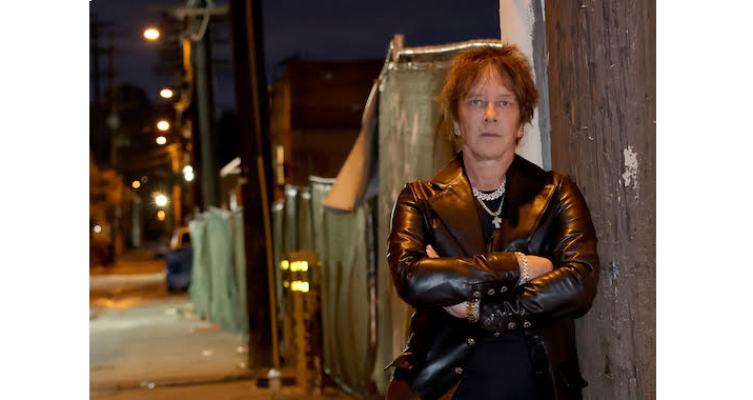
(Pic: Jane Stuart)
GG: Yeah, I think it was more: I was kind of thinking more about your past with Camp Freddy and all those kinds of collaborative situations with notable musicians in the LA area.
BM: Right, there's two types of musicians - not only in LA but anywhere - and they're both totally acceptable. Some musicians like to stay in the bubble of their band. They don't like to collaborate. They're comfortable writing and performing their band’s songs. That's their sound, that's where their voice fits and they're probably nervous, I don't know!
But there are definitely a group of musicians I know - that I'm not gonna name - that would say ‘no’ to collaborating, probably because they're just out of their comfort zone. For me, and you know, everyone knows my story now - every day above ground is a bonus: I should be dead or doing life or some shit like that, right? - so every day above ground is a bonus and I wake up grateful that I get to not work in a 7-Eleven. So if you have that gratitude when you walk on a stage with Royal Machines and there's Slash and Paul Stanley and you're doing a song with both of them, my natural go-to is shut the fuck up, listen and watch. Learn. Be a sponge! These guys have sold millions and millions of records. They are some of the greatest players. I'm gonna watch, I'm just gonna soak it up! So I think it's a matter of remaining grateful throughout your career and I love collaborating because it makes me a better player.
"When you walk on a stage with Slash and Paul Stanley, and you're doing a song with both of them, my natural go-to is: shut the fuck up, listen and watch. Learn. Be a sponge!"
GG: I was just about to move on to that, actually. It’s a really strong sound you’ve got on this record. I was thinking to myself: as a musician, I was thinking of that somewhat hokey question of ‘what was the message you were trying to get out there?’ but also, is it not just a matter of expressing yourself and having fun?
BM: That’s a great question. I think it’s both. I think I took the opportunity to extend my playing and my songwriting. There are some of what I know to be super strong riffs. I’ve grown up with riffs. Look, the very first song that made the hairs on the back of my neck stand up was Anarchy in the UK. It’s one of the greatest pop songs of all time. Despite the fact that they're angry and shouting and it's all very loud and raucous, if you listen to that riff, it's a pop riff. It's a three minute pop song. It's just done with anger.
The Wildhearts we've already talked about. Some of the greatest riffs of all time, AC/DC, how to make three chords turn you on, you know, over 30 years, the same three chords, you know what I mean? (laughs)
I grew up with riffs, so I wanted to bring my best riffs forward because a riff… you know, in South America, they sing the riff to you, and they sing the solos. I wanted to extend my best foot forward with songwriting and riffs. And with lead, you know? I've spent many years saying ‘oh, I'm not a lead player’. Well, I am. Of course I am. There's a lot of my leads all over this album, but my leads are…if I want a million notes a minute I'm gonna call Satriani or Vai or any one of the greatest lead players on the planet.
I come from Steve Jones; I come from Johnny Thunders, so my leads are more melodic. Things you can sing, you know? Think of some of the lead guitar players that have worked with Ozzy: you can sing those solos, so that's me, and then also I just wanted to have fun, you know? It's important! Music is meant to be fun and who ever would have come up with a hip hop song with a heavy chorus that a 15 year old girl sings?
GG: Yeah, not only that: Gary Numan’s daughter!
BM: Well you know, it was interesting because I'm a huge Gary Numan fan and I have been since I saw him play Wembley in ‘79 you know?
GG: Oh, the big tour?
BM: The big tour with the pyramids and the car. As it happens, Gary called me one day a few years ago and asked me to perform my cover of You Are In My Vision with him on stage so I've managed to do that in my career, which is a highlight. I went to see Gary play and - at the time she was 15 - Persia got up and did this beautiful Middle Eastern melody on one of his songs.
And that right there shows me: I wasn't asking Gary to do something, I was asking his 15 year old daughter to do something! It was just to serve the song, the chorus. I could hear this eastern thing and she said yes. That's an example of me having fun because you don't write that song if you're thinking about markets and units and how, you know, billboard chart positions and shit. You don’t!
GG: The element of it is obvious from listening to it. I think the whole album sounds like you had a blast, there's a lot of energy. It’s also, I don't want to say complicated because that's not the correct term, but there's quite a lot of ‘bits’ to these arrangements.
I'm thinking: when you come up with these songs and you've got your riffs, I don't know if you're like me where, if you come up with a great riff, you might even just sit there for 10 minutes going over it, like: I don't want to play anything else because this is good.
And then your songs, you'll add to them and you change a little bit in the middle. And so - when I get to my question (laughs) - the question is when you're recording these into the computer, do you arrange stuff later on after you’ve tracked them? Like perhaps you’ll take this riff and then move it over here.Do you do stuff like that?
BM: That is a very good question. No one's asked me that. No, I don't! It only starts going into Pro Tools once I've got the song. Yeah, Bowie said one day: if you can't play it on a piano or an acoustic guitar, it's not a song. Now, you have to take that with a pinch of salt because you can't play most of Nine Inch Nails’ songs on an acoustic guitar, but you can play them on a piano, and many YouTubers have shown you that! (laughs)
"The people on my album (Steve Vai, Ozzy Osbourne, Corey Taylor, Linda Perry, Al Jourgensen), I class as friends. I didn't go through any managers or any agents."
So I think what I take from that statement is make sure you've got the song first. So I did very little rearranging once it was recorded. What I do is, I'll get a beat, a very basic beat tempo and key and I'll loop it. And so now I'll sit there with a guitar and I'll play the riff like you say, for 10 minutes, thinking ‘I don't want to change this’, but then I start thinking: well hang on, if I just do a little three bar - because I like being obtuse for no reason (laughs) - maybe I'll do a three bar change before the chorus and then I work that out.
But eventually, I'm playing four minutes to one loop, the whole song. Then I sit down and I start doing the instrumentation, and the sonic palette if you like. Maybe I'll stop playing that on guitar, but I'll do it on a fat bass synth and then the actual vibe of the song comes out, but the song’s written before I start recording it.
GG: Okay, and I wonder: you know, we were talking before about how if you want a super fast solo, you’ll talk to Steve Vai, but that act of being involved in that journey of the song as a kind of creative force, I think that probably makes you a more valuable guitar player than most of the YouTubers who can do the sweep picking. I think that it's becoming sort of like ten-a-penny, whereas the actual act of writing an exciting tune is still priceless, you know?
BM: (laughs) Look, I'm not going to diss any of those guys because they can play rings round me but the business does take three separate areas. It takes a certain amount of talent. It also takes a certain amount of intuition and sensitivity when you write an actual song. No one -well, some people do - but I don't wanna hear a five-minute guitar solo. I want to hear a song. You know, the old phrase, ‘don't bore us, get to the chorus’. There is nothing like a big chorus. So you have to understand that the second part of the equation is sensitivity and intuition around the songwriting.
The second part is the sensitivity and intuition around the songwriting and the third part is the business. There are many guitar players, probably. I live in Beverly Hills, so around here, there's probably 10 kids that are 14 that can play rings around me, sweep picking and tapping and all that shit, but they can't write a song to save their lives and they're too scared to stand on a stage. So they're forever going to be in their bedrooms doing YouTube videos. And that's fine, because now you can make money out of that shit.
So that's great. The world needs all sorts. For me, I do have a portion of all three, which is why I can write a song, somewhat play it, I mean, technically, you know, I'm decent. And I also know how to step out and put it out there.
Guitars
GG: Yeah, absolutely. That's something that I would like to know more about. But in the meantime, let's talk about the actual guitar playing and the sounds and everything else. I remember many years ago as a salesman on the guitar shop floor, I remember you had a signature Les Paul. Are you still a Les Paul guy mainly?
BM: I'll never not love Gibson and Les Pauls. And to have a Gibson signature, I mean, when they first called me, I said, ‘you've got the wrong guy’, you know? (laughs) But they were very adamant. Gibson were very complimentary about my contribution to rhythm guitar. Which i've always been clear about: I come from the Malcolm Young school as opposed to the Angus Young school.
I love Gibson Les Pauls. I've got a ton of them. I also in recent years have started playing Knaggs because Steve has a deal with Knaggs and you know, we traded! He's got my guitar, I've got his. There is a difference. They are hand built. It's kind of like - this is a reference that only motorcyclists will get - you can ride a Yamaha or you can ride an MV Agusta, which is hand built in Italy, only a certain amount per year. And the difference is, the Yamaha has generic controls, let's say from a Ford if Ford made motorcycles. It's the same as, you know, you drive a Ford or you drive a Bugatti.
So, I have now got a signature with Knaggs because I've grown a really good relationship with Peter and Joe over at Knaggs and I needed P90s for that old Billy Idol sound, but I needed them to be noiseless, and I wanted a junior shaped guitar but I wanted it thicker because a lot of juniors feel like they're made out of plywood. They basically made the guitar that I wanted and it's absolutely gorgeous, so these days I do play Gibsons but I also have a signature with Knaggs and I'm in love with the build quality and the relationship I have with Knaggs.
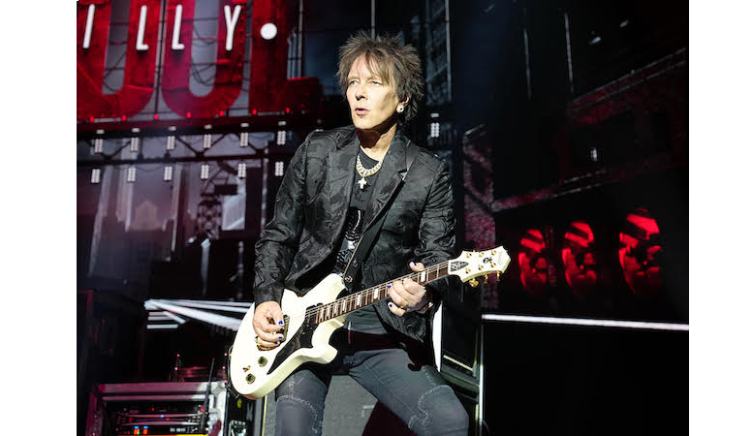
(Pic: Jane Stuart)
GG: Nice! We're talking about these big fat tones on your new record: is it mainly P90s then?
BM: It's not, it's a combination. One of the things I learnt from Steve Jones - who's a good friend of mine - is that it's about layering guitars, it's about inversions. I do it with Steve on stage a lot and we now have a telepathic thing, I can just hear and see what he's doing. If he plays an open E, I'm going to play a seventh fret bar chord. If he plays a C bar chord, I'm going to play an open C. It's about inversions stacked on top of each other, that's what gives you the power.
Simultaneously, I'll do a stereo rhythm track with Seymour Duncan JB humbuckers in a Les Paul and that'll be you know 25 and 25 each side (referring to how far left and right each part i spanned in a mix from 0 being the centre to 100 being ‘hard left’ or ‘hard right’ in either direction - Ray), and then I'll do exactly the same thing 35 each side with the P90s. Exactly the same thing. It just sounds like a stereo pair of guitars but it's fat as fuck because you've got you've got the four different takes with two different pickups. It's great.
GG: And it's that way where your ear picks up on there being something happening, but you play so tight that it doesn't sound like different performances.
BM: I'm glad you said that, Ray, because you can only do that if you're tight. And one thing I am is an extremely tight rhythm guitar player. If you're going to do that and play an open E and a seventh fret E, you better be playing exactly the same thing, otherwise it just sounds like a mess, you know?
"If I'm asking someone to contribute, I'm asking not only for them to perform on it, but to bring their essence and their vibe"
GG: Yeah, the different notes, kind of... Yeah, the notes start a different way, but they end a different way as well: when you try to mute the chord, for example, you're not quite getting the same speed with this chord as you do with that one.
BM: Then it becomes about the right hand, because the right hand can control each chord to the exact beat, or quarter beat, or 16th beat. It's rhythm guitar. That's proper rhythm guitar playing, which I pride myself on.
GG: Sure. Would you... just off the top of my head, would you subscribe to the notion that you only really properly learn that once you've played a guitar really loud? In other words, on stage?
BM: Yes, I would! Actually, I've never thought of it but yes, I would. And also when you're standing up because a lot of people have a practice amp in their bedroom and they sit down. You can play a lot of shit like that, but when you're playing at 10 on your Marshall, standing up and jumping around and the guitar's moving around, that's when you learn!
See, I've been doing that for decades! (laughs) So yeah, you learn your craft. It's like anything: you learn your craft as you go along.
GG: Yeah, and with someone like yourself, you're not playing your guitar up here either (indicating a very high strap) When you're on stage, it's important: people listen with their eyes, so you have to wear it low because it looks good. And that changes everything about your right hand.
BM: Oh my god, it changes everything. If you look again, I'm not going to name them, but certain guitar players, if you look at a picture of them from the 70s, it's down by their nuts. And if you look at a picture of them in 2023, it's up by their tits (laughs). Guitars rise in a career, and that hasn't happened to me. I'm very fussy about my guitar strap.I use Levy’s guitar straps, and they actually made one to my specification. I drive my tech mad because every time we get new straps, I have him lay them all out. Each guitar is different depending on where the strap locks are, so we've got them so that, for instance, the Gretsch White Falcon that I use is this length, all the Les Pauls are this length, the Knaggs… I'm a stickler. My guitar tech has tested me: he gives me a guitar -try this out - and I put it on and before I play it, I'm like, no, straps wrong (laughs) It's just from decades of playing.
GG: Exactly! In terms of writing songs, when you're putting together the arrangement and so on, how far down the line would you start thinking about vocal melodies and how to put them into the song?
BM: Immediately. Immediately, like I say, I’ll have it on a loop and I'll be writing a verse and as I'm writing the verse, I'm singing a melody, scat vocals, no lyrics, but I know where we are in terms of the musical range, and that helps me with chord choices. If you sing a note, there are many different chords that can go under that note, which is why if you listen to some of the songs - Sound of Freedom is a good example on the album - the verses have different endings. The vocal melody is the same, but each verse has a slightly different chord progression at the end. Well, you only get that if you're playing the chords and singing and you go, ‘oh! Instead of a G, I can play a D there and I can still sing the same thing’. The primary melody line stays the same. That's a favourite of mine, to put the chords around a vocal melody.
GG: Yeah, you can't really do that in advance, you have to know what you're going to sing before you can make that decision.
BM: Yeah! And lyrics come last, but phrasing is important and melody is very important. I'm also thinking harmonies, even though I can't sing a lead line and harmony at the same time, my head can think it. And so from the first note I'm thinking about melody, yeah..
GG: Brilliant. And in terms of writing the songs: what we’re hearing are the finished, mixed masters: the perfect article. How good are you at knowing when a song is finished?
BM: Oh, good question. The writing of the song, pretty good. Sometimes less is more, and definitely when you've got more, you can hear that you've got more. You're like: these 16 bars need to be 8. That's the writing of the song. With the mixing of the song, Barry Pointer mixed this record. Barry Pointer is amazing, and is single-handedly responsible for the cohesive nature of the album, because I'm throwing him a piano ballad, an Ozzy song, and all kinds of shit, and he made it sound in the mix like one cohesive body.
But I drove him crazy because he would send me a mix and I'd be like - just to use the common example - the cowbell’s too loud. Or the cowbell’s not loud enough. I am a stickler and unfortunately for him I'm good at mixing, or in my head I'm good at mixing, so I can hear that hi-hat is 2db too quiet, but only in this section. So it takes a long time to finish the mix.
GG: Sure. Okay, yeah. It's just one of those ones where it's kind of like, you can have a sense and then all of a sudden you're like, ‘that's complete’ and then you can just move on.
BM: Writing is like that. Writing songs, I know when it's done.
GG: Excellent. So a couple more guitar questions, if that’s ok? I suppose, first of all, I haven't tried playing along to any of the songs yet, but what tunings do you tend to use?
BM: Lots of different tunings. I mean, there’s a lot of four forty, and drop D, you know, just drop that E string. Let me think about this. Within a song, I will use different tunings. So for example we were talking about Steve Vai. He's been very generous. I've got a bunch of Jems. I'm a big Jem fan, I love them. And he's had a couple made for me where the neck is my profile. It's not the Ibanez profile.
"I have no designs on suddenly starting a huge solo career. That is not the game plan here. I just want to leave behind an album with my name on it that speaks to the musical sensibilities that I love, which are broad."
GG: Really? Are they chunkier?
BM: Yeah. He's a lovely man. I've got a couple that, you know, have got finishes that are only for me. I wanted a tip of the hat to Mick Ronson, but I wanted it in a Jem. So it's a black body with a natural, carved top with my neck on it. So that I keep in a whole step down tuning.
So for instance, there is more than one song on the album where the riff was written in 440, but it made sense…let's see. The song will be in D, right? So I'm playing it on the fifth fret with a barre chord, but I can also then double it with the Ibanez playing an open E, which is tuned down to D.
I have different tunings upstairs, and I do mix and match, but most of the keys are 440 keys, if you like.
GG: Yeah. Oh man, I really want to see that Jem. If you feel like emailing a picture, I would be very, very up for seeing that (laughs). So just to round things off, I don't know whether there's been any announcements or not, but are you planning to take this one out and put together a band for a tour?
BM: No, that would not serve the record. There's no way you can tour an album that has Ozzy and Al Jourgensen and Corey Taylor and Linda Perry and DMC. There's just no way. And I definitely wouldn't want to water down what I've created by me singing it. Even with Slash and Miles Kennedy, that's great because it's an actual band that writes their own songs with Miles, and then Miles gets to sing Paradise City and stuff like that. But I just wouldn't want to water down what I've created with a less than stellar tour.
So no, it won't be toured. People are talking to me about doing a one-off or two-off performance of it - because obviously I can ask my friends - but it takes a big cheque book!
You know, people get paid in this business and I'm not sure that that is viable, but touring, no.
GG: Okay, not fair enough. That's a perfectly sensible thing. So, after the release of the record, what kind of things are next for you in 2024?
BM: Billy Idol (laughs). You know, the day the album is released, my job is done. That's all I ever wanted to do, was leave the body of work for the world. So all of this stuff, they're talking to me right now about Crack Cocaine is a bona fide hit. You know, it's charting all over the place…all of that is a bonus. I wasn't making this record to get those numbers or to create anything other than here's a Billy Morrison album.
So the day it drops, I'm kind of happy! I'm good! I go back to being Billy Idol's guitar player and he has a lot of stuff coming down the pipeline. And maybe one day I'll make The Morrison Project 2!
That sounds like a good year ahead to me! Hopefully we’ll get a sequel to this album at some point in the future, because this first Billy Morrison Project album is tons of fun. Since our conversation a few weeks ago, the album has been released, so you’ll find it on any of your preferred streaming sites. Head over to the official Billy Morrison website for more news, merch, music and art, and keep an eye on the official Billy Idol website for news of upcoming music and tours.
I’d like to thank Billy for giving me an excellent conversation so early in the morning, and to Sharon Chevin for putting us in touch. Thanks. As always, to yourself for reading another exclusive guitarguitar interview. Did you like this one? If so, please click through to the guitarguitar Interviews page, where you’ll find interviews with Steve Vai, Billy Duffy, Reeves Gabrels and nearly 200 others! More soon!


